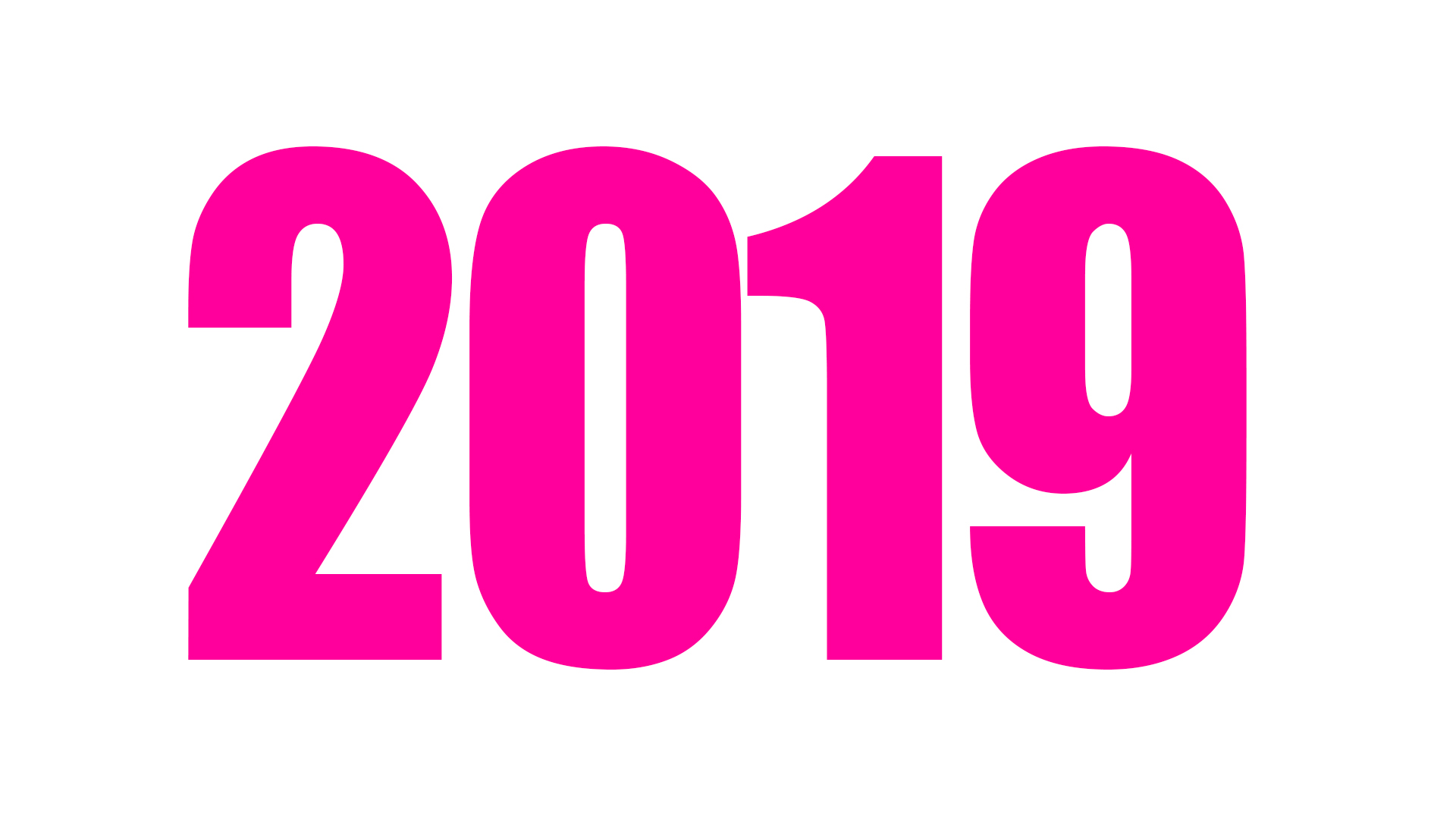
Both 4.48 Psychosis and Denis & Katya have appeared in a number of ‘Best of 2019’ or ‘Best of the Decade’ lists. Here is a selection:
4.48 Psychosis at the top of the list of Alex Ross’ Best Performances of 2019 in The New Yorker
A composer of ferocious dramatic instincts
— Alex Ross


Both 4.48 Psychosis and Denis & Katya have appeared in a number of ‘Best of 2019’ or ‘Best of the Decade’ lists. Here is a selection:
4.48 Psychosis at the top of the list of Alex Ross’ Best Performances of 2019 in The New Yorker

Some production images from the Opéra National du Rhin / Royal Opera production of 4.48 Psychosis, September 2019. Directed by Ted Huffman, Design by Hannah Clark, Video by Pierre Martin, Light by D.M. Wood, Sound by Sound Intermedia and Fight Direction by RC-Annie. The performers featured in the photos are Gweneth-Ann Rand, Robyn Allegra Parton, Susanna Hurrell, Samantha Price, Rachael Lloyd and Lucy Schaufer, with the Orchestre Philharmonique de Strasbourg conducted by Richard Baker. All images taken by Klara Beck. They can be used for press purposes with the appropriate credit.
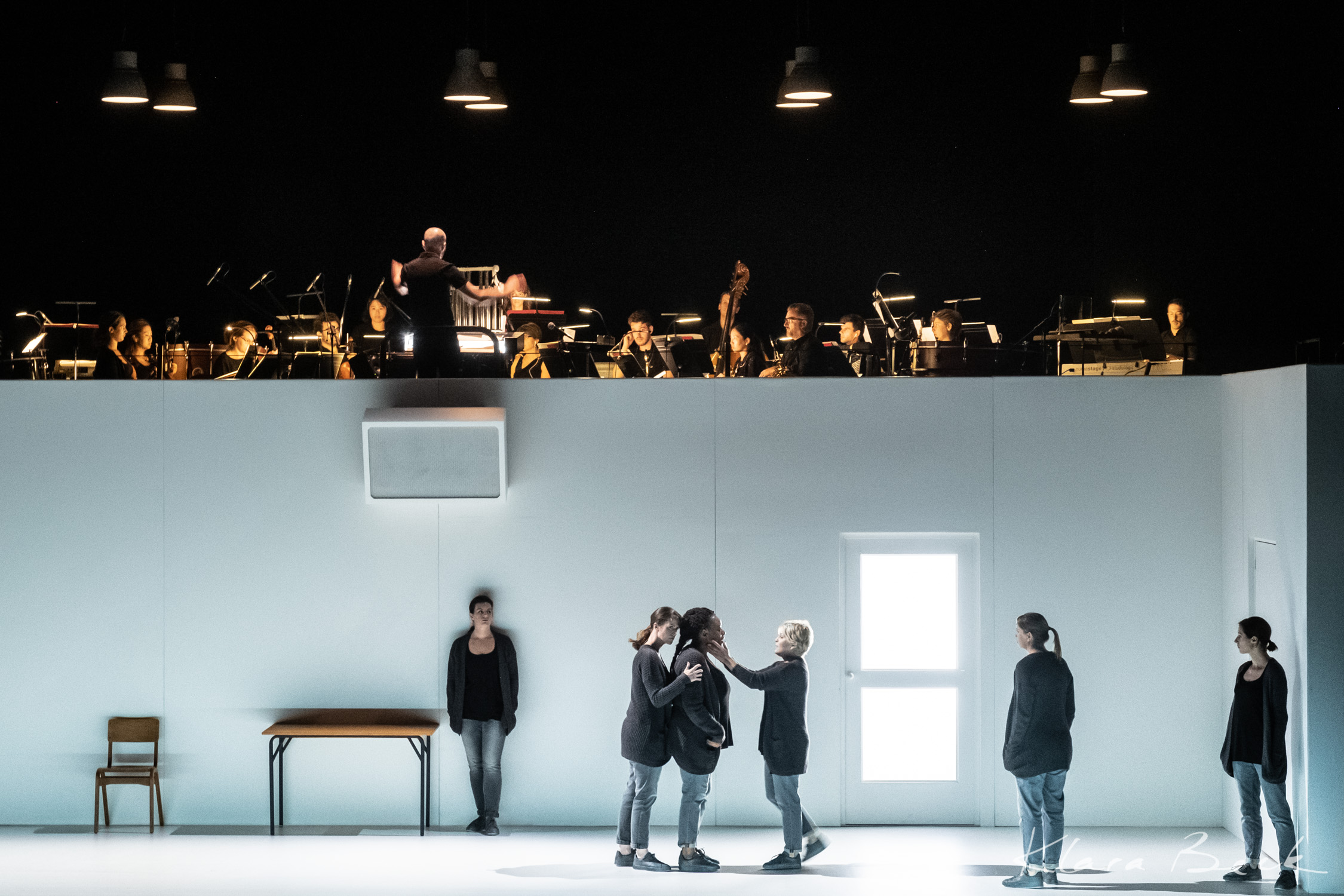

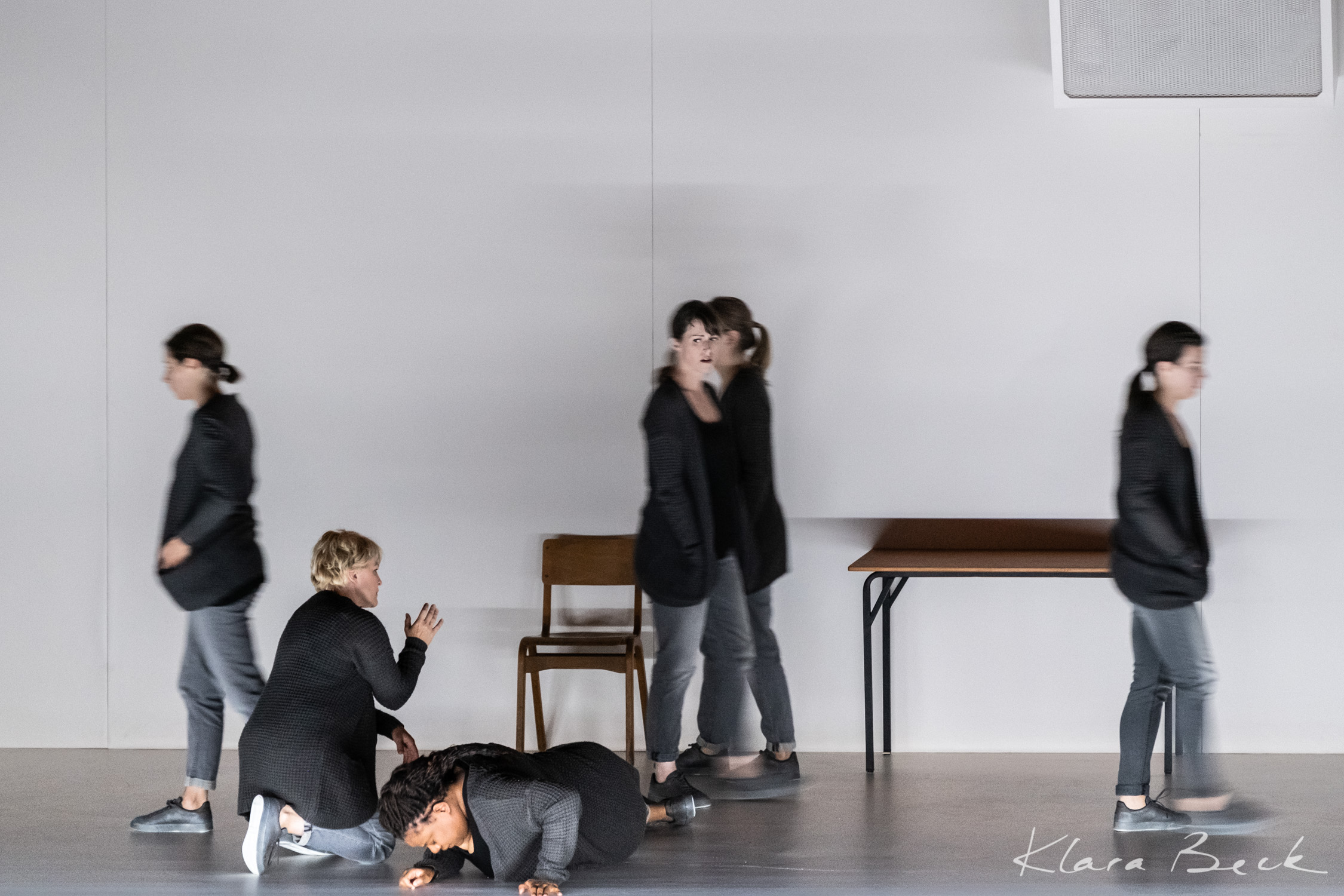
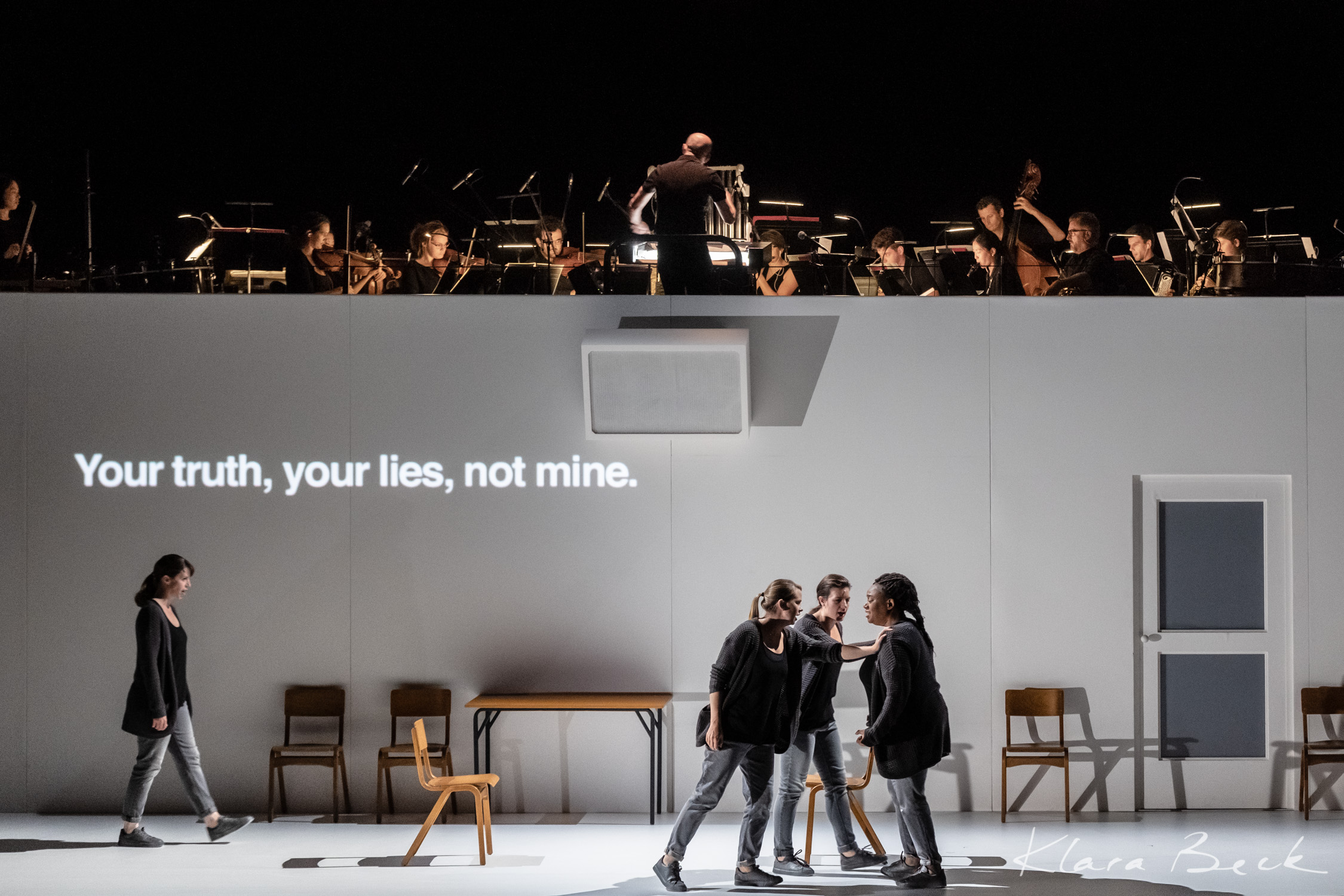
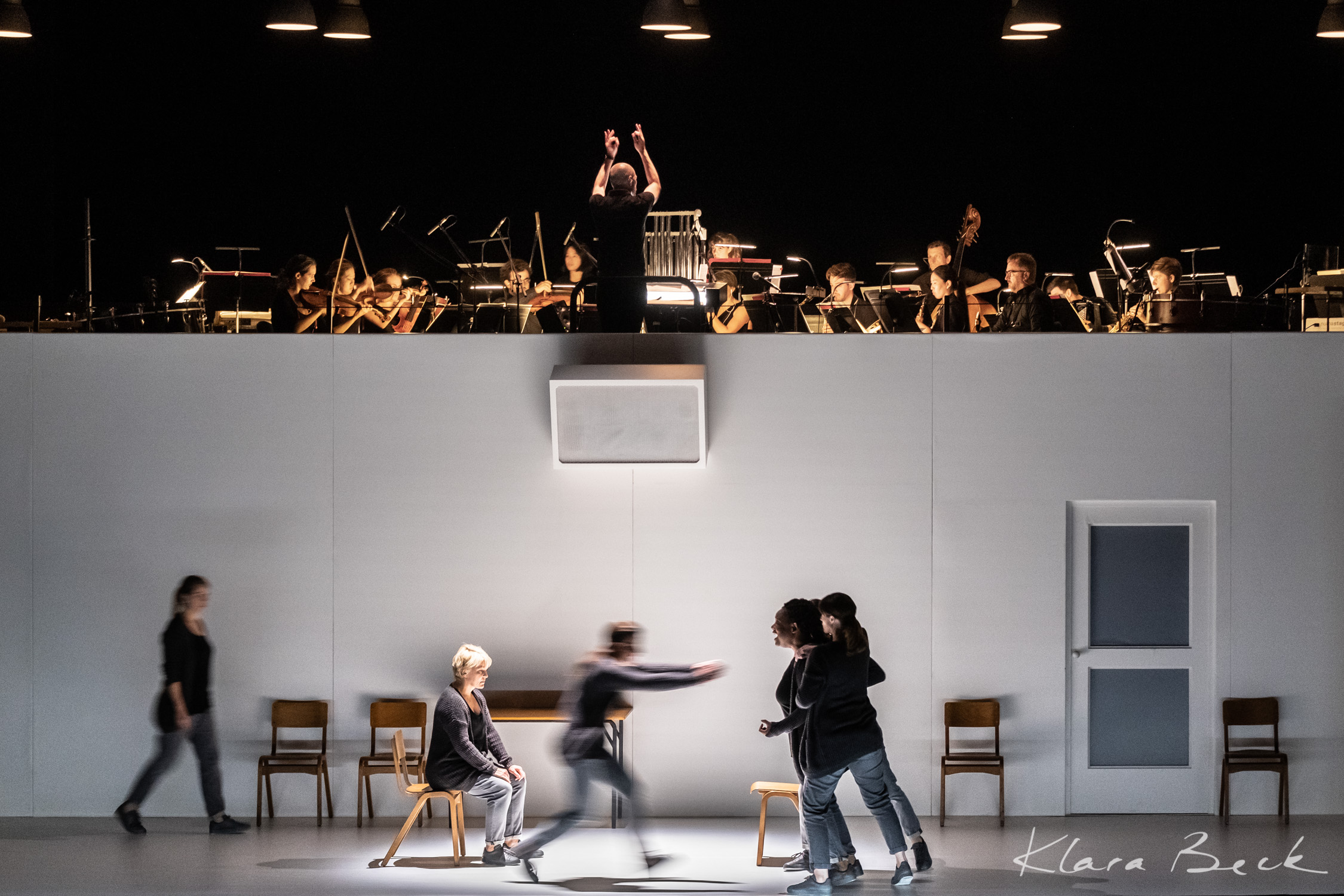
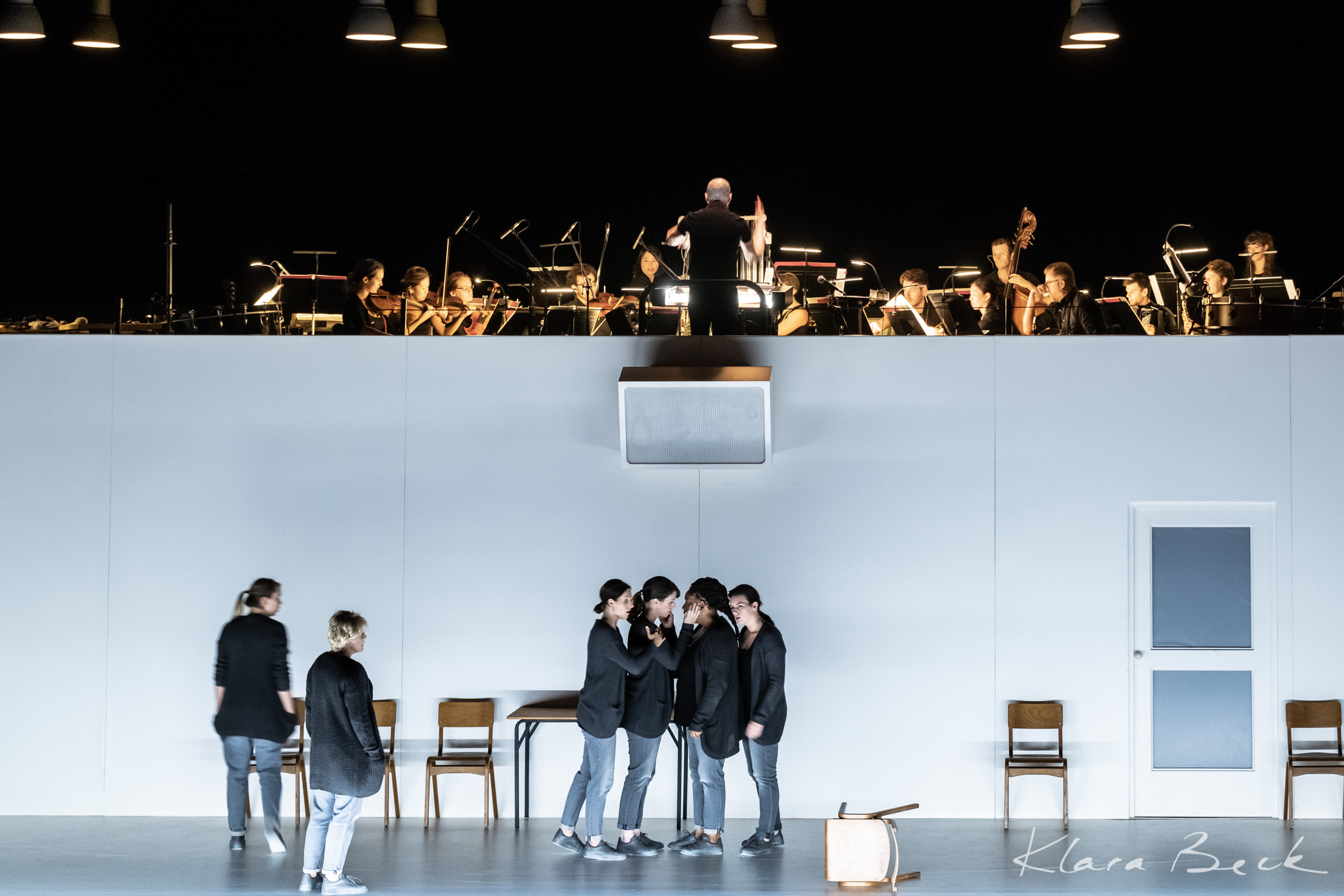

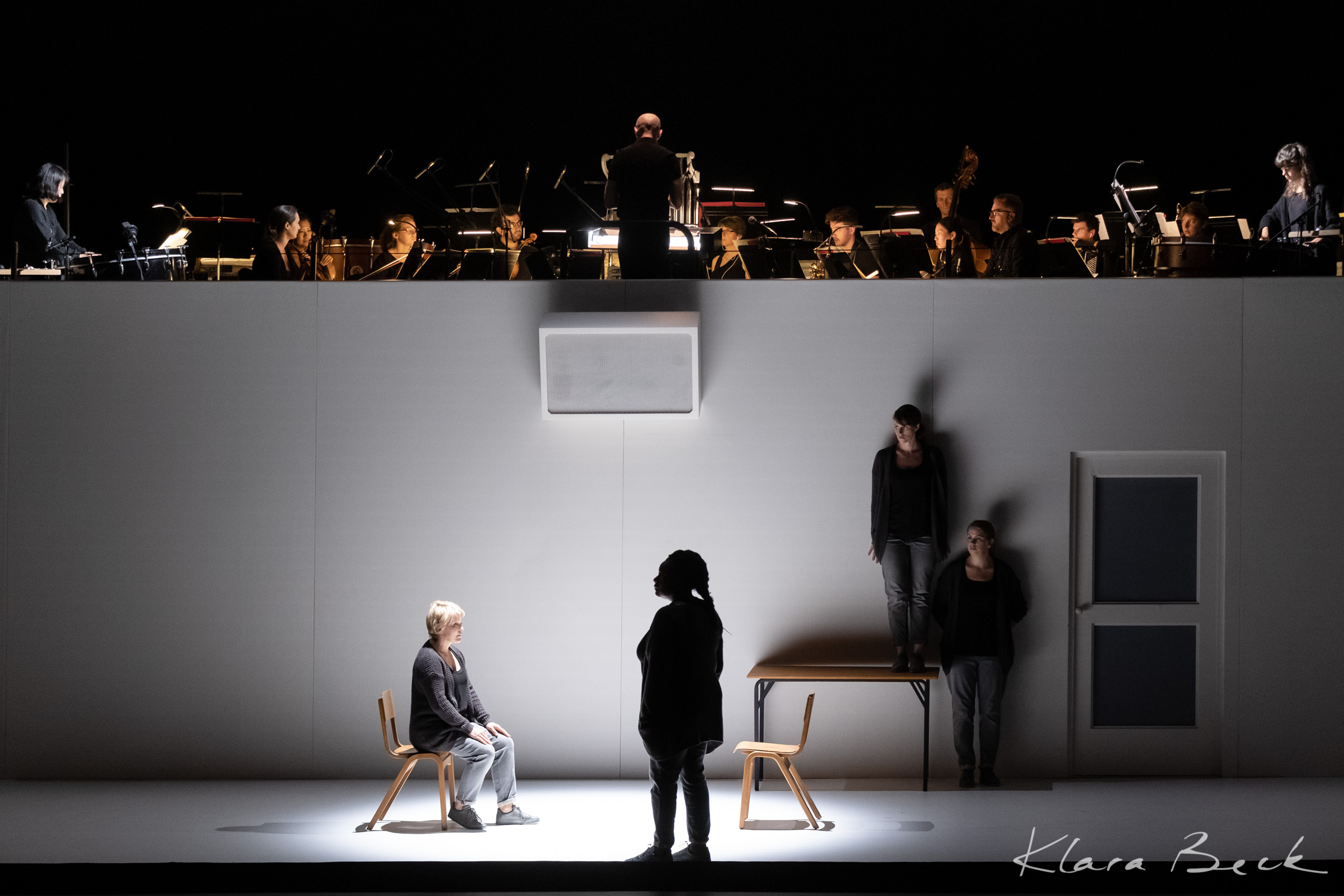
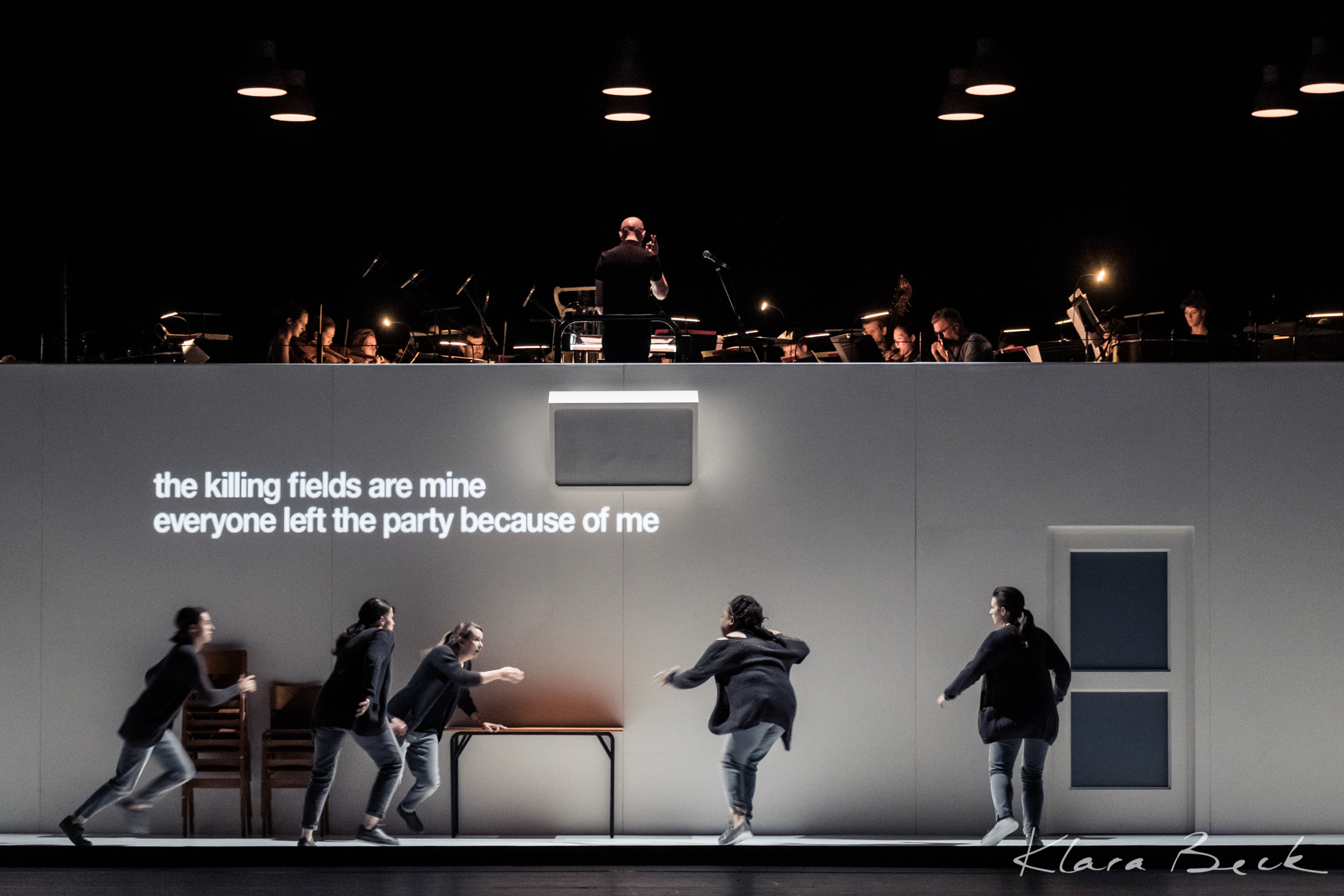

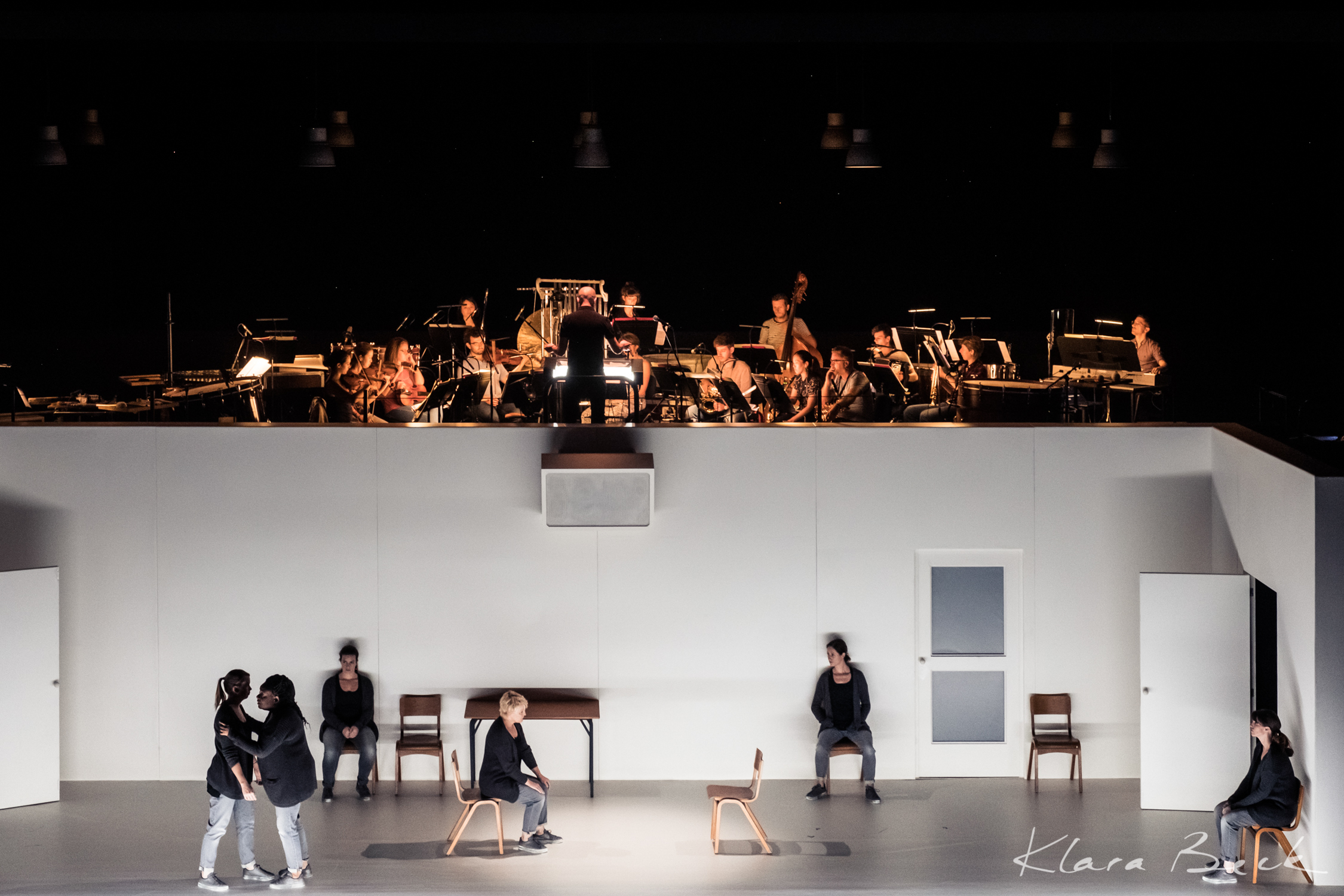
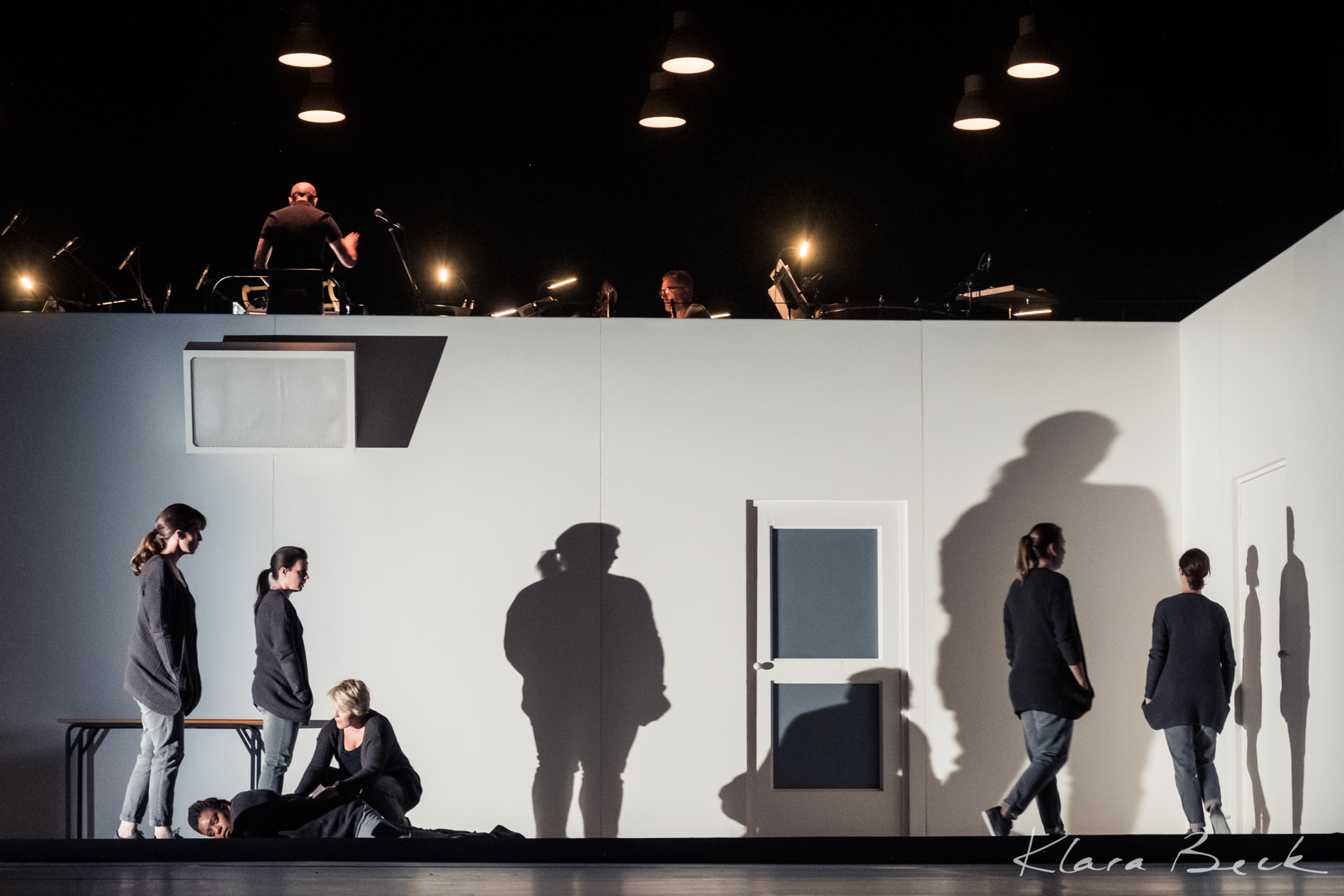
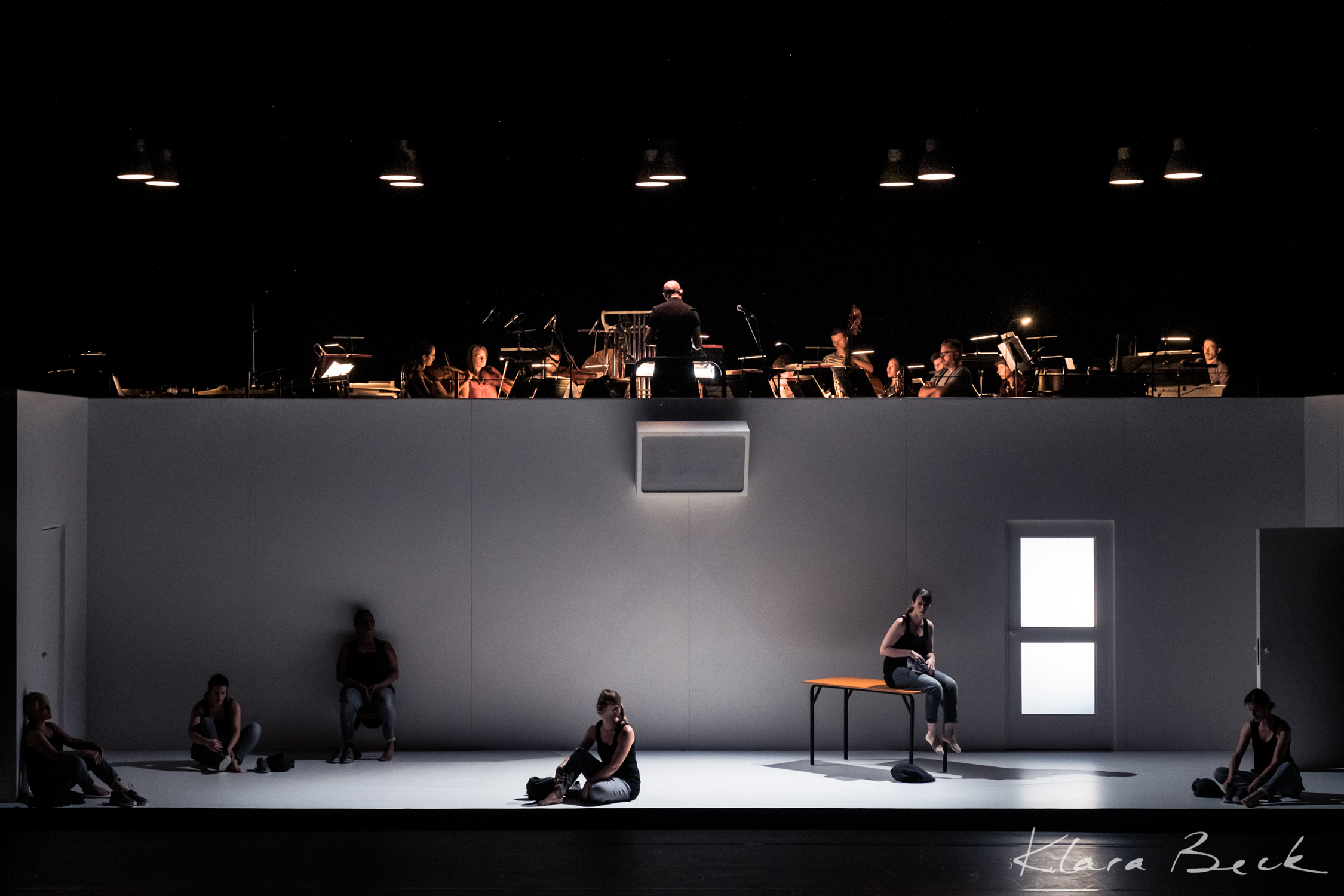



The French premiere of 4.48 Psychosis took place 18-22 September 2019 at the Opéra National du Rhin in Strasbourg, in collaboration with the Musica Festival. The Royal Opera production was performed by the Orchestre Philharmonique de Strasbourg and Sound Intermedia under the baton of Richard Baker, with Gweneth-Ann Rand, Robyn Allegra Parton, Susanna Hurrell, Samantha Price, Rachael Lloyd and Lucy Schaufer as the six cast.
Below are some excerpts of reviews (machine translated from original language):
“Philip Venables’ music translates the shift into an intimate space where depression becomes an intimate melody that accompanies this loss of self.” — The Wanderer
“A devastating musical writing with varied influences faithfully takes up the composite dimension of the initial text: fragments of lines, intimate dialogues, cognitive tests, lists of medicines telescope. Twelve musicians conducted by Richard Baker transcribe the permanent agitation of an unquiet body and brain in a score that sometimes lets out a dull din, assumes a proximity to the skilfully controlled cacophony or stretches out a throbbing hum to translate the uncomfortable and disturbing character of the work.” — SceneWeb
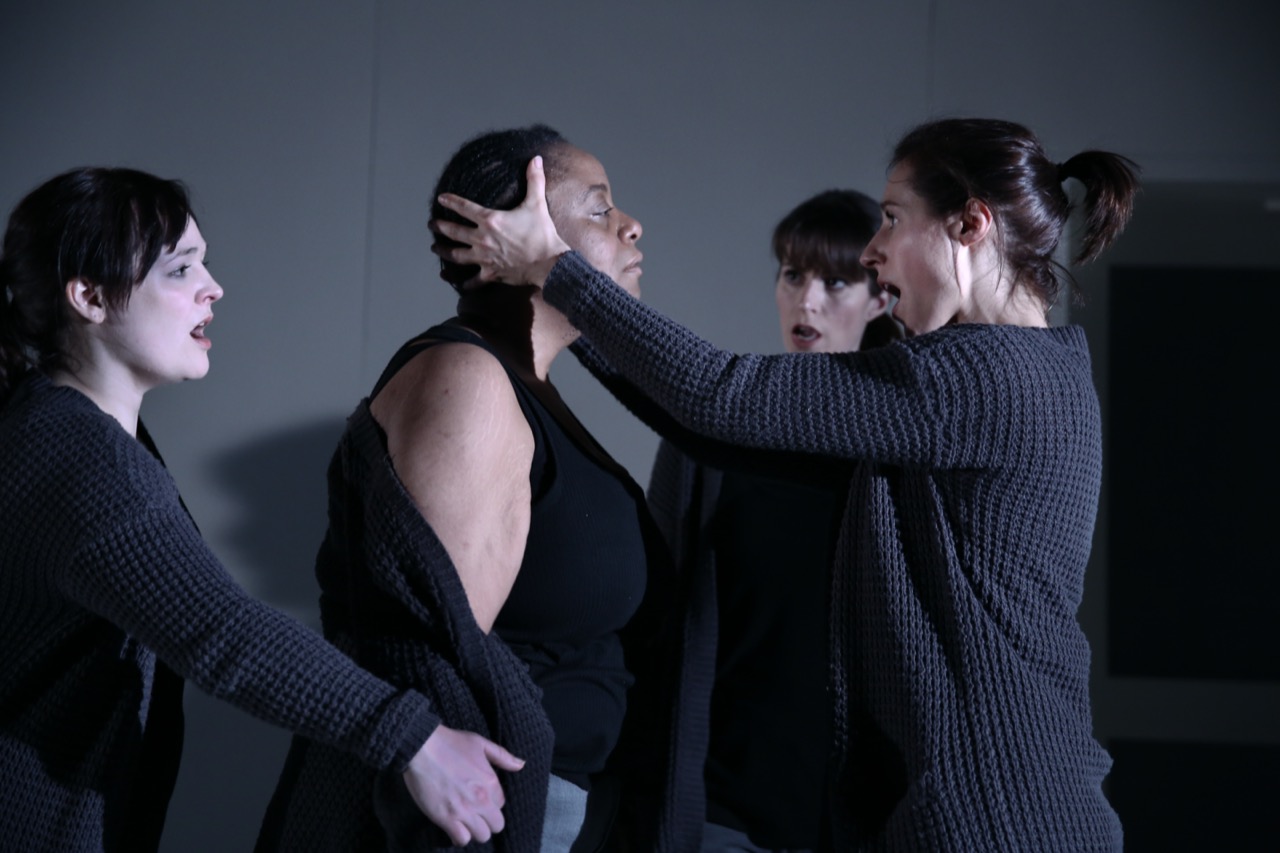
Some production images from the Prototype Festival / Royal Opera production of 4.48 Psychosis, January 2019. Directed by Ted Huffman, Design by Hannah Clark, Video by Pierre Martin, Light by D.M. Wood, Sound by Sound Intermedia and Fight Direction by RC-Annie. The performers featured in the photos are Gweneth-Ann Rand, Lucy Hall, Susanna Hurrell, Samantha Price, Rachael Lloyd and Lucy Schaufer, with the Contemporaneous Ensemble conducted by William Cole. All images taken by Paula Court. They can be used for press purposes with the appropriate credit.

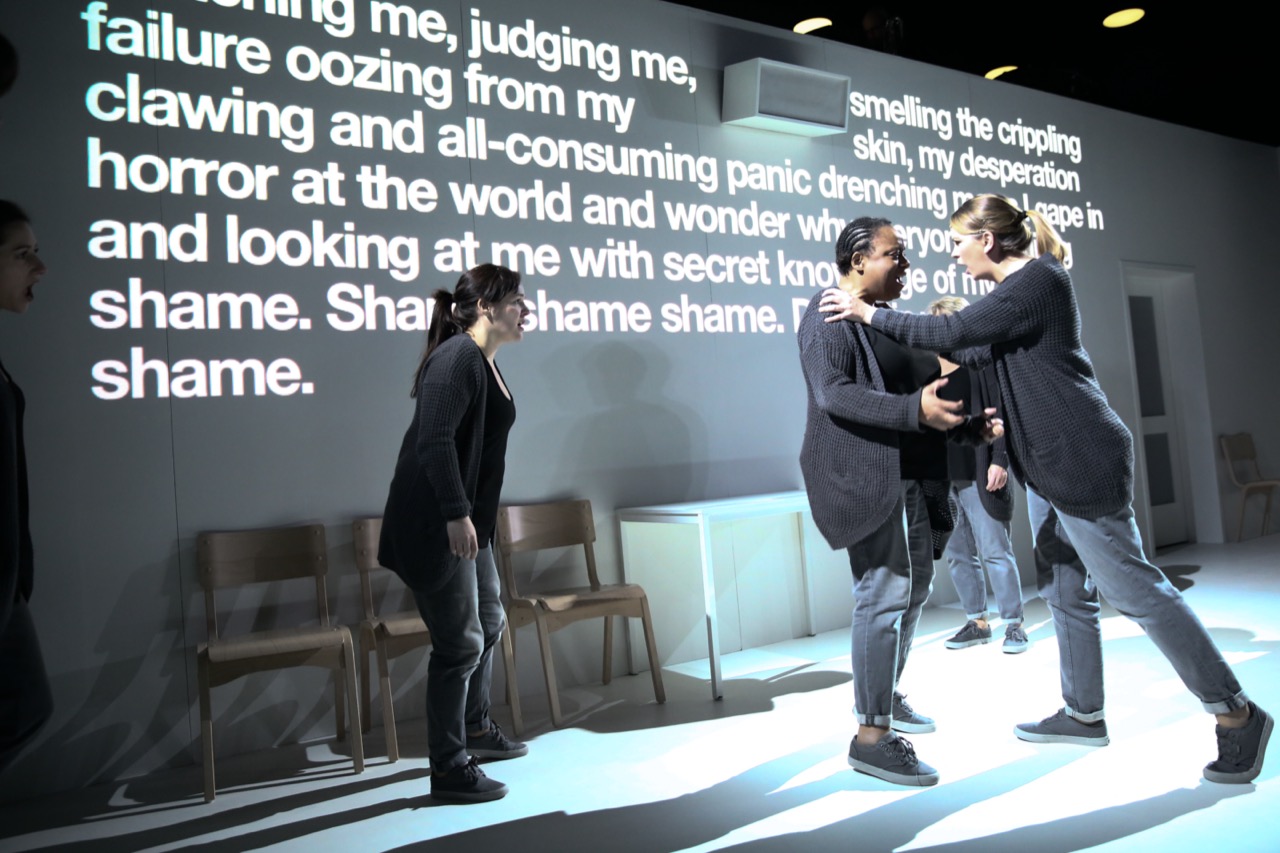


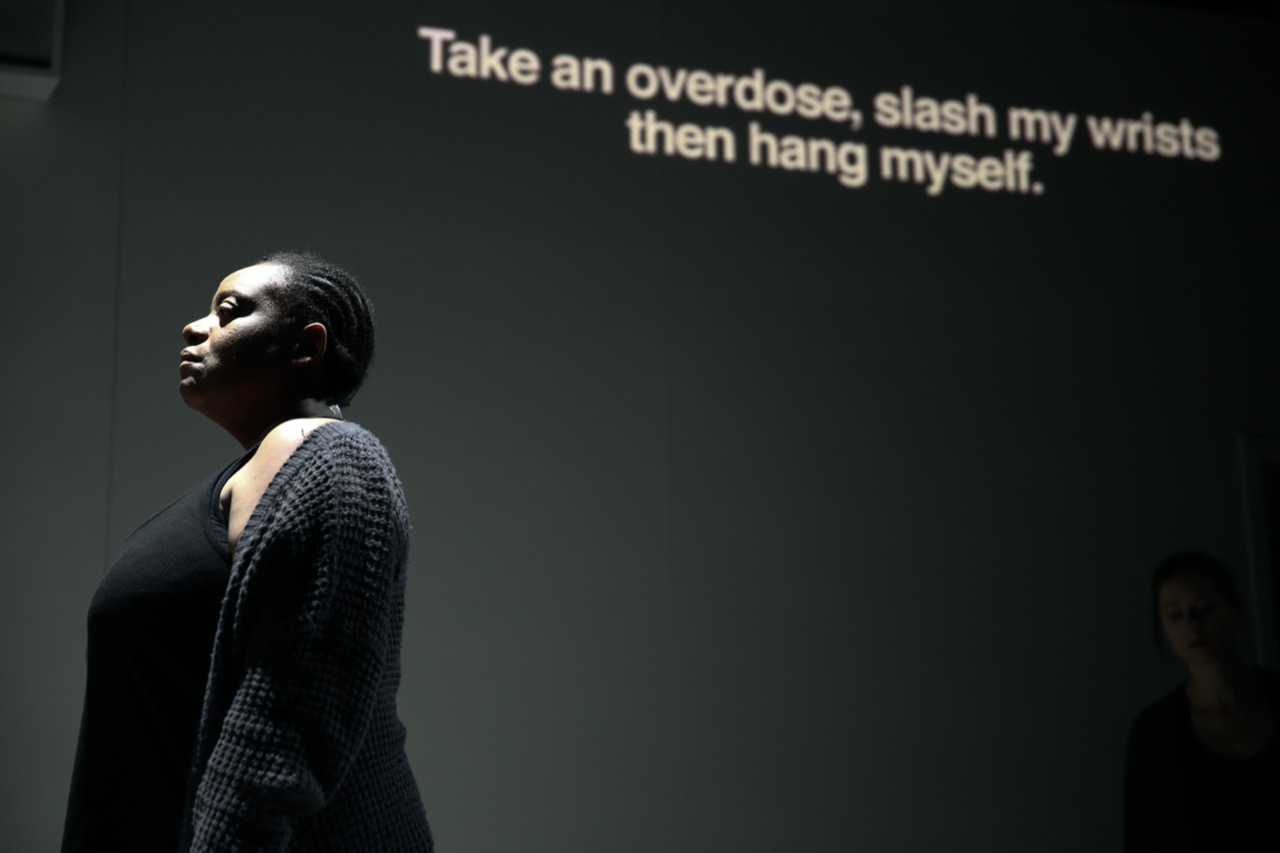
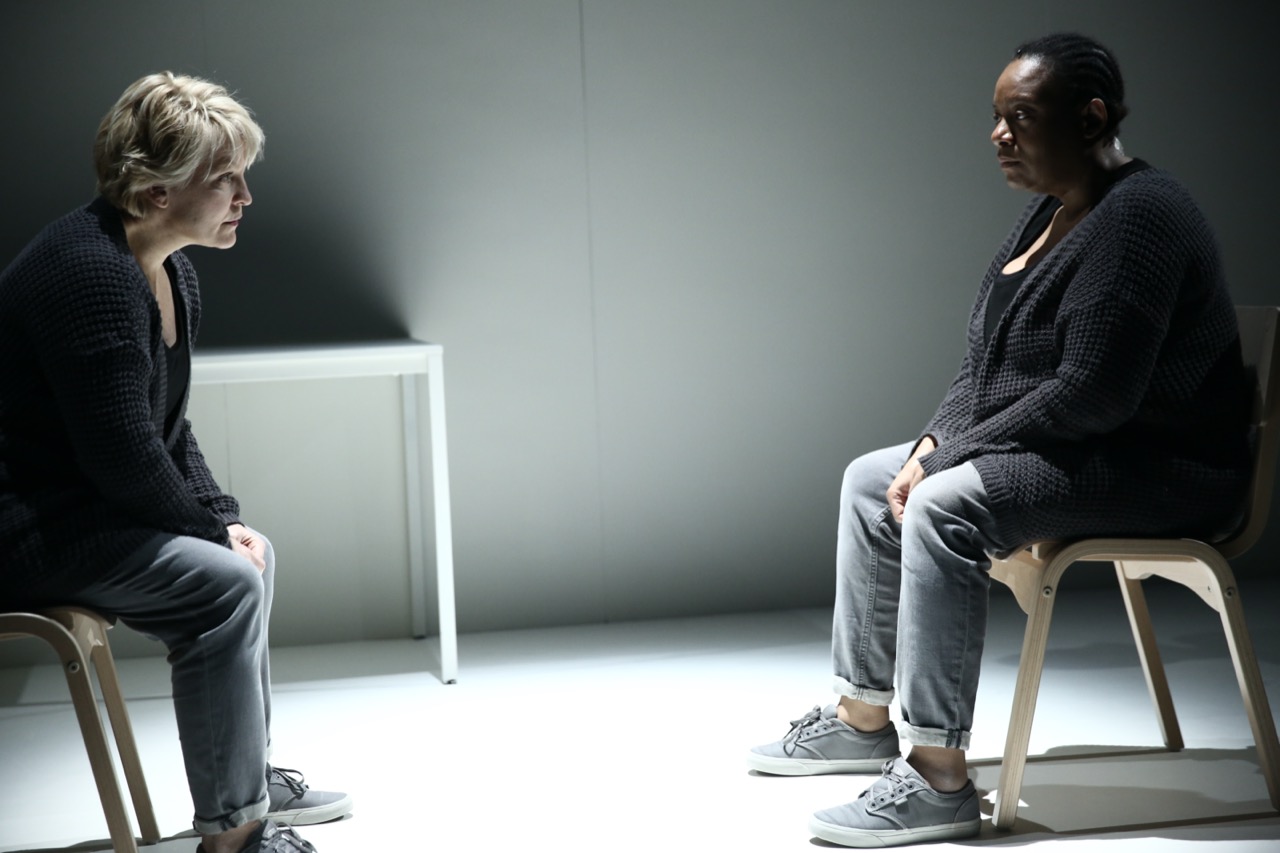



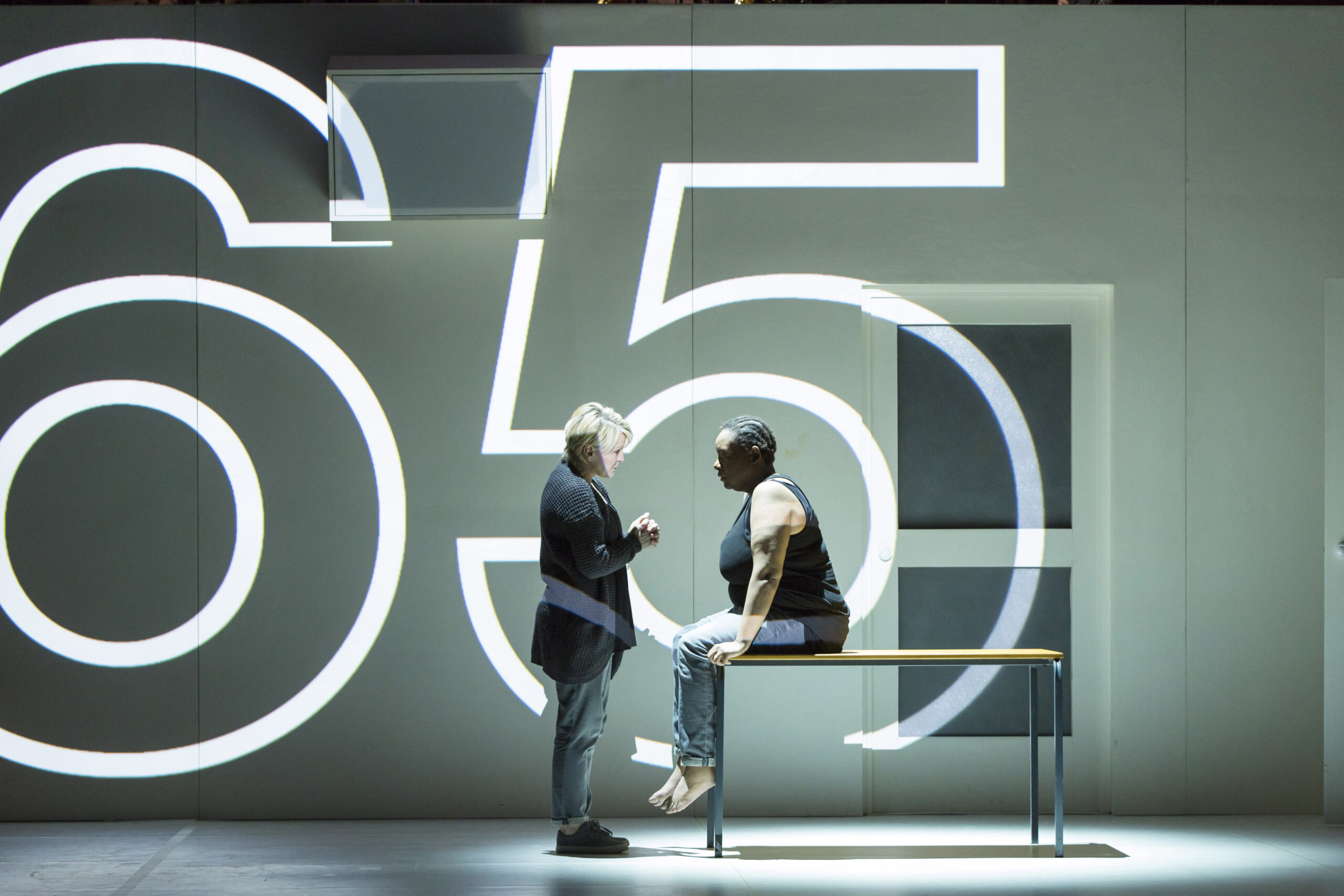
Some production images from the revival of the Royal Opera production of 4.48 Psychosis, May 2018. Directed by Ted Huffman, Design by Hannah Clark, Video by Pierre Martin, Light by D.M. Wood, Sound by Sound Intermedia. The performers featured in the photos are Gweneth-Ann Rand, Lucy Hall, Susanna Hurrell, Samantha Price, Rachael Lloyd and Lucy Schaufer, with the Chroma Ensemble conducted by Richard Baker. All images taken by Stephen Cummiskey © The Royal Opera. They can be used for press purposes with the appropriate credit.
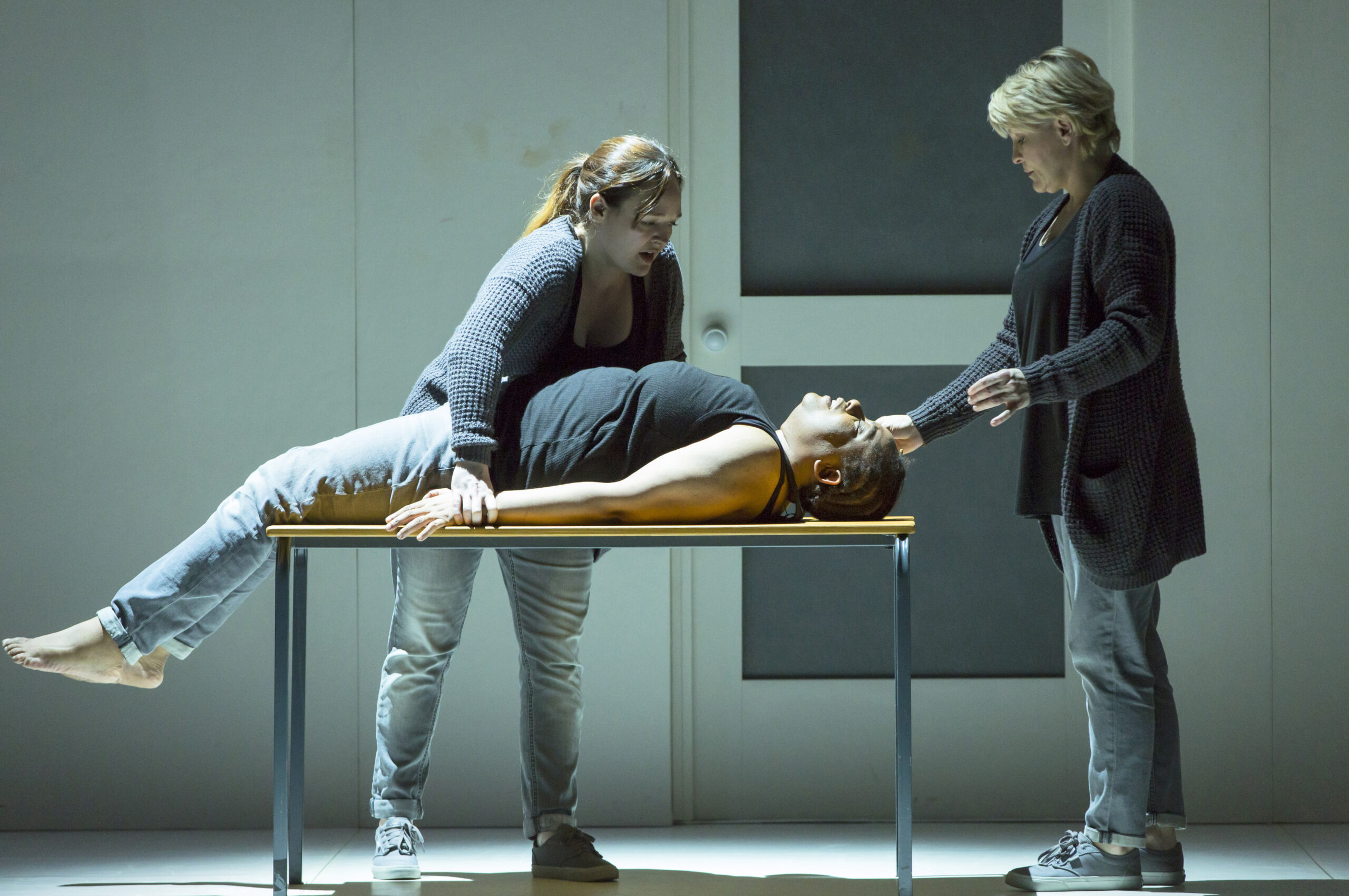

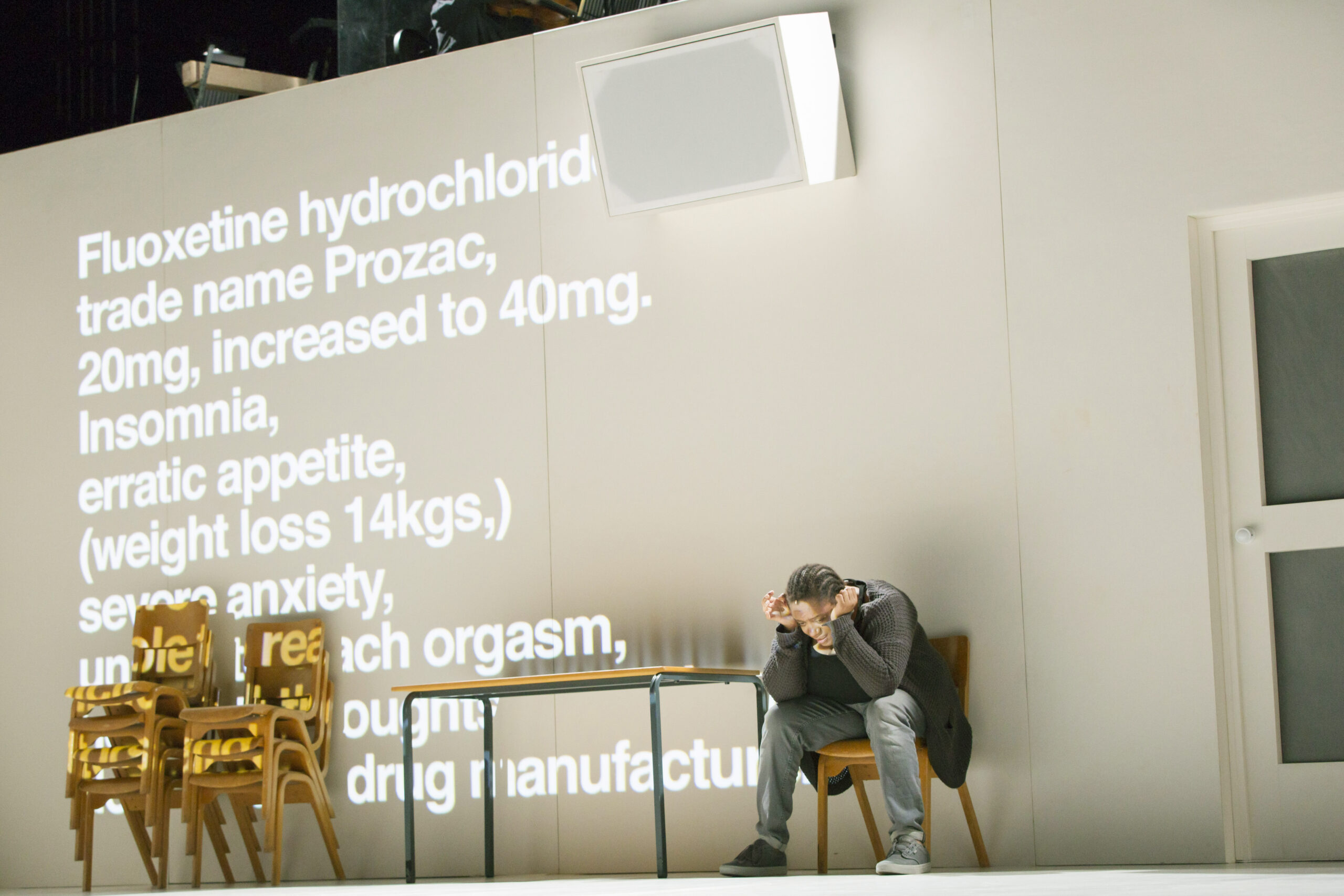

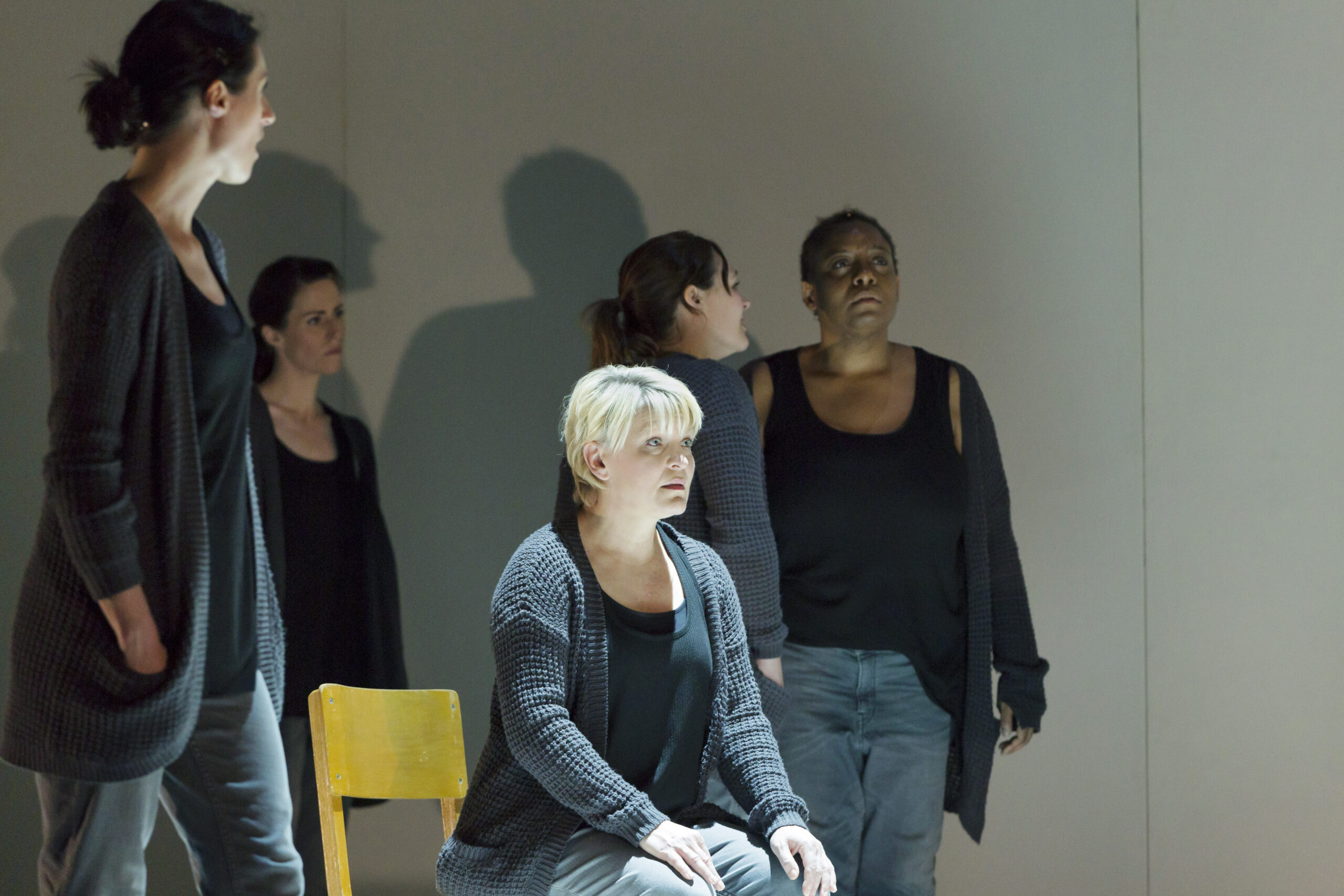
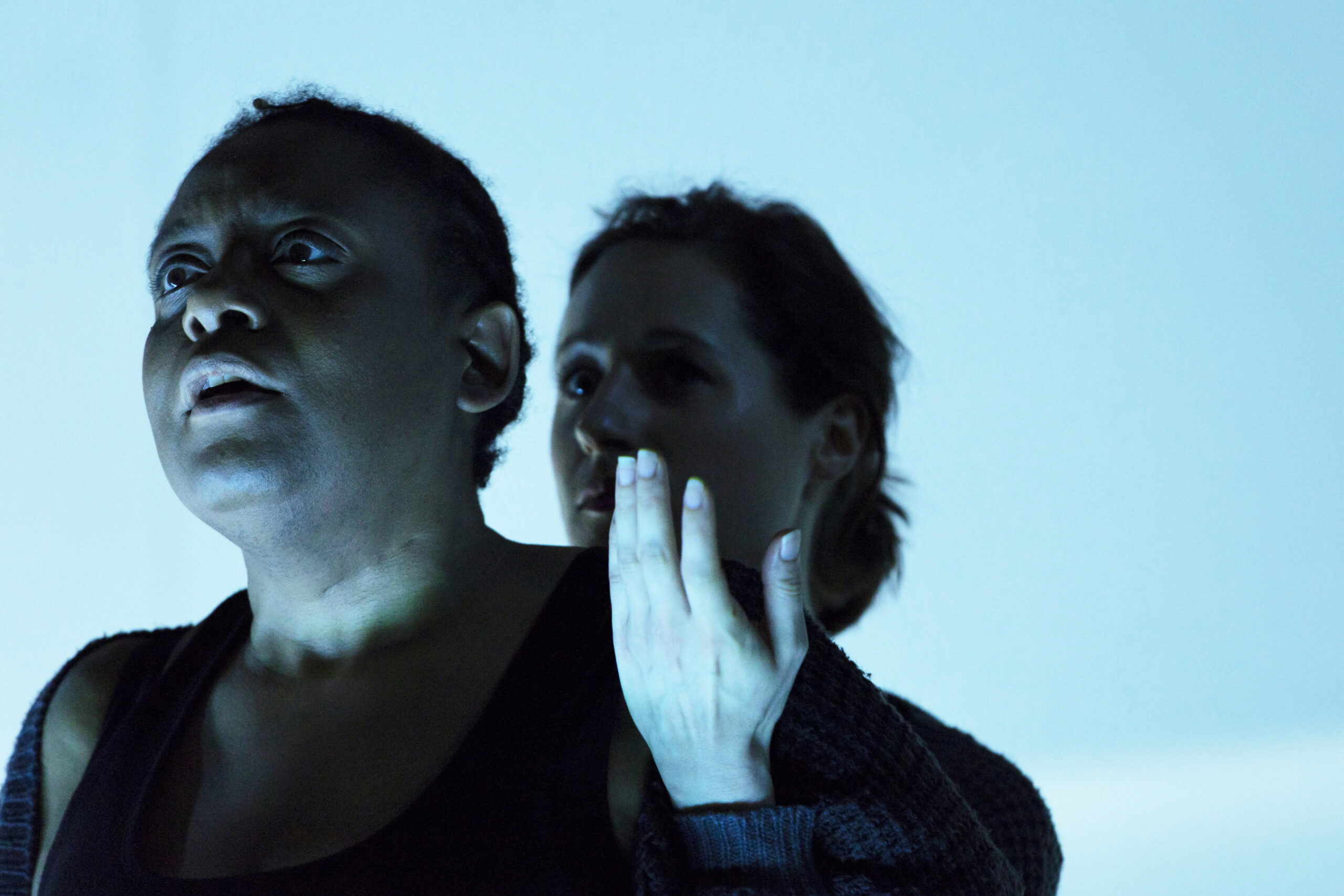



The recent performances of the Royal Opera production of 4.48 Psychosis have come to an end. We didn’t expect much press for a revival, of course, but the reviews there have been have been outstanding. The performances took place at the Lyric Theatre Hammersmith in April and May 2018. Here are some links to some of the reviews:
(photo: Stephen Cummiskey)

Dates for revival performances of 4.48 Psychosis have been announced by the Lyric Theatre Hammersmith and the Royal Opera. The production, which premiered in 2016 at the Lyric Theatre, co-produced by the Royal Opera and the Guildhall School of Music & Drama, will be performed again on the following dates, all at 7.30pm:
Monday 23rd April 2018 – preview performance / free first night for local residents
Tuesday 24th April 2018 – Performance 1
Thursday 26th April 2018 – Performance 2
Saturday 28th April 2018 – Performance 3
Monday 30th April 2018 – Performance 4
Wednesday 2nd May 2018 – Performance 5
Friday 4th May 2018 – Performance 6

4.48 Psychosis has been shortlisted for the South Bank Sky Arts Award for Best Opera 2017. The awards ceremony is on 9th July at the Savoy Hotel in London, and covers all art forms from opera, dance, classical music, theatre, literature, comedy, television, pop music film and visual arts. The awards will be presented by Melvyn Bragg. The other shortlisted productions for the opera award are Glyndebourne Youth Opera for Nothing (David Bruce/Glyn Maxwell) and Opera North for their Ring Cycle. Fingers crossed!

 4.48 Psychosis has been nominated for an Olivier Award, in the category Best New Opera Production. The award ceremony is at the Royal Albert Hall on 9th April, and we are up against Akhnaten (ENO), Cosi Fan Tutte (ROH) and Lulu (ENO). Fingers crossed! More info about the nominations is here.
4.48 Psychosis has been nominated for an Olivier Award, in the category Best New Opera Production. The award ceremony is at the Royal Albert Hall on 9th April, and we are up against Akhnaten (ENO), Cosi Fan Tutte (ROH) and Lulu (ENO). Fingers crossed! More info about the nominations is here.

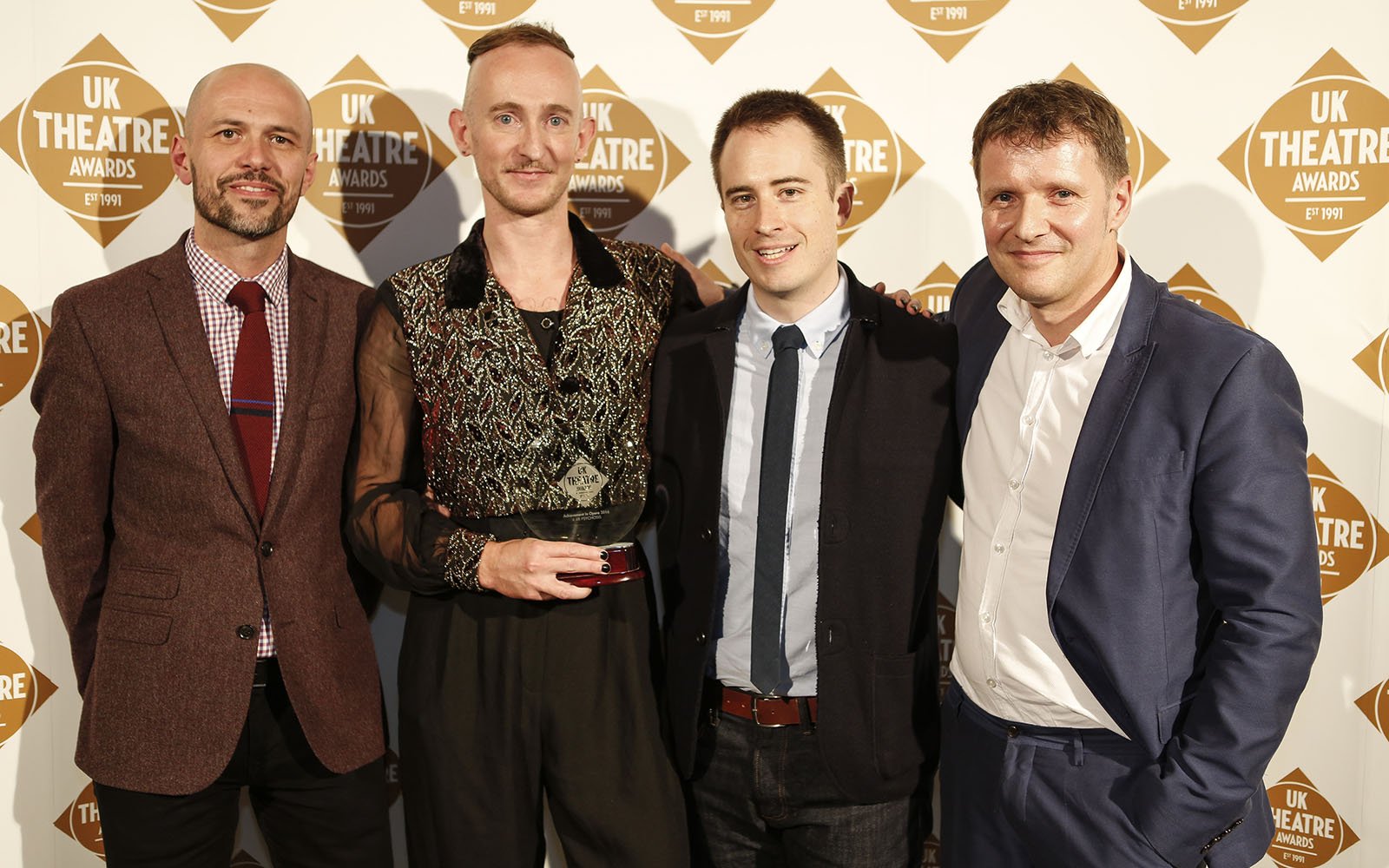 I’m delighted to say that we have just won the award for Achievement in Opera at the UK Theatre Awards 2016. The Royal Opera and Guildhall School of Music & Drama, in association with the Lyric Hammersmith, were nominated for my opera, 4.48 Psychosis, and the other nominees were Welsh National Opera for Figaro Gets a Divorce and In Parenthesis, and Scottish Opera with Music Theatre Wales for The Devil Inside. It was such a pleasure for me to accept the award alongside Ted Huffman, Richard Baker and Julian Philips, and for 4.48 Psychosis to have been recognised by the British theatre community – Ted and I feel it’s a vindication of our mission to blur the lines between opera and theatre!
I’m delighted to say that we have just won the award for Achievement in Opera at the UK Theatre Awards 2016. The Royal Opera and Guildhall School of Music & Drama, in association with the Lyric Hammersmith, were nominated for my opera, 4.48 Psychosis, and the other nominees were Welsh National Opera for Figaro Gets a Divorce and In Parenthesis, and Scottish Opera with Music Theatre Wales for The Devil Inside. It was such a pleasure for me to accept the award alongside Ted Huffman, Richard Baker and Julian Philips, and for 4.48 Psychosis to have been recognised by the British theatre community – Ted and I feel it’s a vindication of our mission to blur the lines between opera and theatre!
There is more information on this Royal Opera press release.
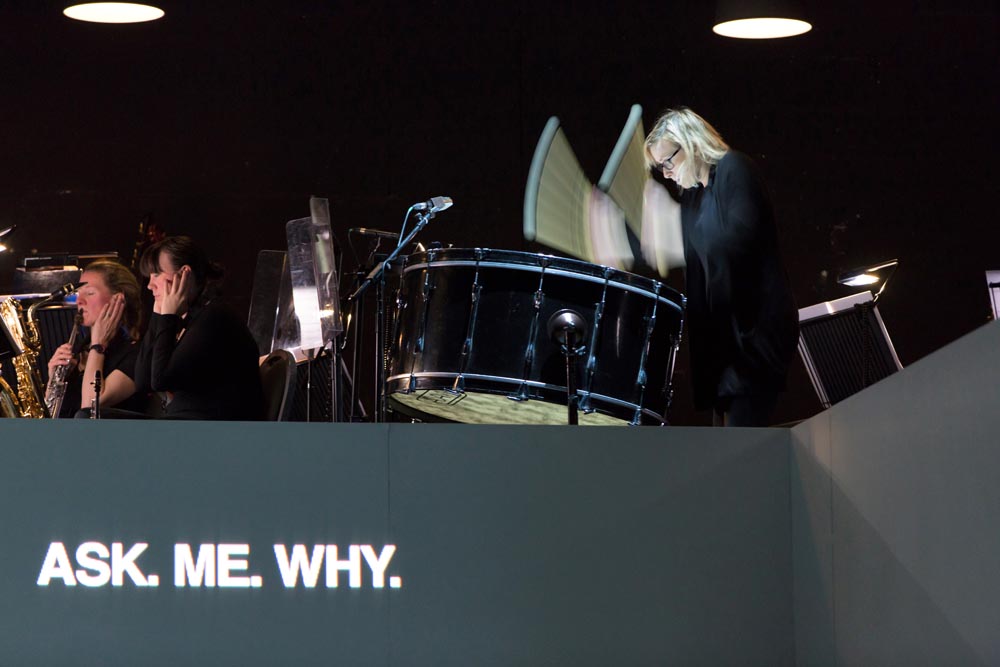
The critics’ response to the world premiere of 4.48 Psychosis has been incredible. 4.48 Psychosis is my first finished opera, produced by the Royal Opera at the Lyric Theatre Hammersmith in April and May 2016. Here are some excerpts from the reviews:
The Independent. ★★★★★
“Where this first-ever operatic setting by Royal Opera House Guildhall composer-in-residence Philip Venables succeeds is through simple honesty. With a score ranging guilelessly from motoric arrhythmia to wispy renaissance, director Ted Huffman and team attempt neither dramatic adornment nor explanation but allow the text to breathe within a kaleidoscope of inner-outer conflict. […] Duelling percussionists parley in a doctor-patient morse code. A tapestry of strings, accordion and saxes evoke polyphonies of yearning, while tenderly but inexorably we encounter hopeless recesses of the mind. Knowledge of Kane’s suicide shortly after writing the play can only make this humane and understated piece the more compelling.”
The Telegraph. ★★★★
4.48 Psychosis opera is rawly powerful and laceratingly honest. “Venables’s high-pitched score is a soundscape that imaginatively penetrates and dramatises the heart of this darkness. Ferocious peremptory drum beats mingle ironically with cocktail-hour smooch broadcast from the radio; the vocal writing veers between monotonous chant and shrieking anguish; and there are even moments of melancholy beauty, when the women harmonise laments for a lost life of beauty, friendship, value. […] This is an urgent message from black-dog hell, and it should not go unheeded.”
The Guardian. ★★★★
Philip Venables proves he’s one of the finest composers around with an intricate score inspired by Kane’s very personal story of clinical depression. “But the yearning, intricate vocal writing – Monteverdian in its timelessness – poignantly reminds us that depression is also the absence of love. Even in despair, Kane could be a savage ironist, and brassy, postmodern toccatas accompany the endless prescriptions of anti-depressants. The word “silence” was her only stage direction; Venables fills those pauses with distant muzak, among the most unnerving sounds in the work. […] above all, it confirms Philip Venables’s reputation as one of the finest of the younger generation of composers working today.”
The Times. ★★★★
Every self-harming syllable of Sarah Kane’s angry play is clear as Philip Venables finds a musical vocabulary for the drugs that treat depression. “Chroma’s strings, saxophones, accordion and synthesizer smear and blur in parallel to the drugs, sometimes delicately, sometimes violently. Click here for more info. Every self-harming syllable of the text is clear. There are neon-bright salutes to Bartók’s Bluebeard (a blast of Door Five C major), and a lament derived from the Agnus Dei of Bach’s B minor Mass.”
The Observer. ★★★★
Philip Venables makes Sarah Kane’s final work sing. “The revelation is how Venables has enriched her play through music. He challenges the conventions of opera. Via an array of resources he ambushes and refreshes an old art form. His technique is that of a collagist. Text is variously spoken, projected, amplified, conveyed rhythmically with percussion and sung, often in aria-like lament or chorale outburst. Snatches of Purcell – a mini viola fantasia arrests the action for several moments – and Bach coexist with high-energy funk reminiscent of the late Steve Martland. On reading later that Martland was Venables’s teacher, I can hear that element as a tribute rather than an imitation. I need to know more of Venables’s music to find his own musical identity: my task, not his.”
The Financial Times. ★★★★
‘Unhinged and chilling’. “Kane’s text is spoken, sung and projected on screens: it seems to emanate from everywhere. But Venables’ achievement is bigger than that. He manages to enhance Kane’s groundbreaking format with his own unbuttoned imagination. His score lurches between chattering polyphony, sounds of sawing wood, and post-romantic arias, spiced up with eerie violin shrieks. In the exchanges between patient and therapist, two percussionists thrash out rhythmic speech patterns as the text appears on screens beneath them. Then, when the din fades away, we’re left with the indifferent tinkle of elevator music. It’s unhinged and chilling, albeit laced with Kane’s trademark humour. Most of all, it is dizzyingly colourful.”
The Arts Desk. ★★★★
A musical dramatisation of Sarah Kane’s classic play finds both pain and consolation. “Picking his way through the chattering textual landscape with infinite care and understanding, cutting little text and adding none, Venables groups the material into genres. The structure that emerges is something like a sketch show; musical and dramatic tropes or textures return again and again, gaining weight and significance cumulatively through repetition and juxtaposition. […] Set against these fixed musical landmarks, stand-alone episodes make far greater impact. An exquisite aria for Clare Presland, sung over a synthesised accompaniment, is equal parts Purcell and pop song, a musical memory that offers a sustained moment of stillness, refusing to give way to the assault of other words and sounds. […] Venables’s orchestration (light on strings, heavy on saxophones and keyboards textures) is spare but telling, cultivating a mechanistic quality even when combining purely acoustic instruments that refuses to sentimentalise the outpourings of Kane’s speakers. Paired with the heady, giddy texture of so many upper voices, the result feels dangerously unanchored, unmoored from bass certainty and support.”
The Stage. ★★★★
“Philip Venables’ operatic version of Sarah Kane’s final play is both startling and immensely moving. […] a wide-ranging stylistic melange that counterpoints the freewheeling intellectual sophistication and through-the-floor psychological depths reached in Kane’s play.”
Music OMH. ★★★★
“Venables’ score, played by the CHROMA Ensemble conducted by Richard Baker, is poignant and atmospheric and suits the words very well. It allows some to be uttered slowly, and others to be rattled through in a haze, signifying how someone’s thoughts can rush in and pile on top of each other. While this 4.48 Psychosis undoubtedly constitutes an opera, the music is best understood as a contributory component to a sensory experience that is also created through word, setting, gesture, movement and sound in the widest sense of the word. We sometimes hear the radio play or ‘voiceovers’ from offstage. Similarly, ‘arias’, cries of despair or religious sounding music can be abruptly interrupted by other sounds, revealing how thought patterns can shift and some feelings drown out others.”
The Spectator.
“Experimentation in the service of absolute emotional precision: Venables’ economical work is one of the most exhilarating operas in years, even while it gives voice to some of the darkest thoughts imaginable.”
Tempo Journal
“I cannot recall having been as powerfully moved by an opera as this, much of it watched with my hand clasped over my mouth.”
Bachtrack.
Powerful and assured. “Whenever the music made use of multiple layers, and particularly when these materials were somehow archetypal or reminiscent of other music, Venables’ clarity of conception as a composer really shone through. From lullabies through sad electric keyboard pop songs to the descending bass of Baroque laments that surfaced repeatedly, these musics were always tending towards the past; towards memory, and in connecting with our own memories of them, lent depth and empathy to the ‘character’ presenting them. […] Seeing a list of the formal devices used by Venables, it would be easy to think that these were used as crutches. But Venables’ opera is a very assured and crafted work, placing Kane’s words in a formalised and estranged context which manages not to make the emotions overwrought, but not downplaying them either.”
British Medical Journal.
“The shimmering score, the choreographed moves of the singers, and the (often projected) words work well together, in verses and prose, staccato rhythms, and rich polyphonic sounds. During moments of “silence,” lighter music (muzak?)—probably recorded—was playing in the background, making me wonder whether this was somehow happening in the main character’s mind. Or maybe in my own mind? The production was incredibly tense, and every crisis that the protagonist experienced seemed worse than the preceding one, her sense of isolation, anger, and hopelessness more acute, her withdrawal into her despair more final. She sings about a previous suicide attempt by taking an overdose of her multifarious medications; this had been unsuccessful. […] It felt difficult to applaud after such an unremittingly bleak 90 minutes, but the performances and staging had been absolutely superb. The operatic format was an absolutely inspired choice as the words were rhythmical and music can convey emotions that words cannot, or convey them differently. Outstanding!”
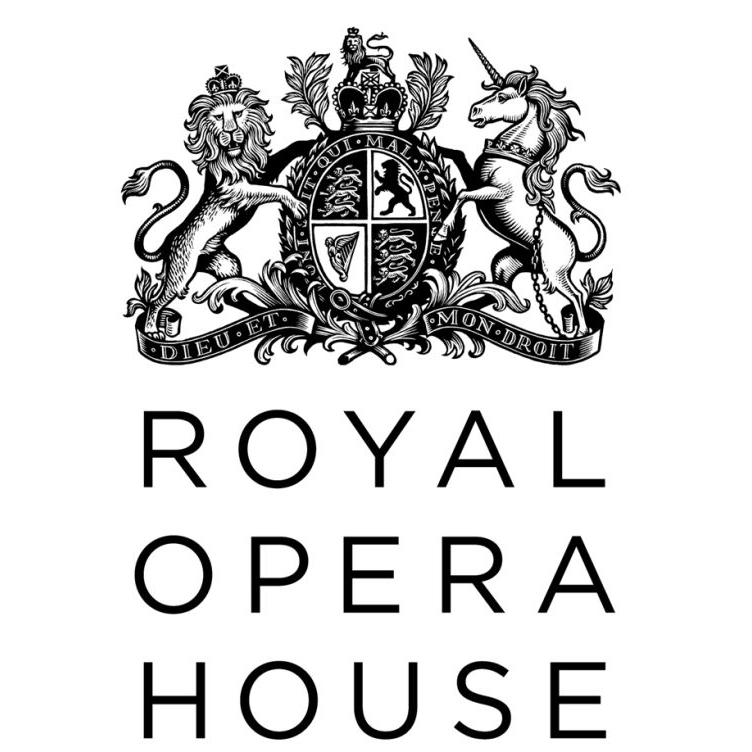
From GSMD Press release:
Philip Venables to research and write major work for performance at the ROH Linbury Studio Theatre in 2016.
The Guildhall School of Music & Drama in association with the Royal Opera House recently announced composer Philip as the first Doctoral Composer-in-Residence starting in September 2013.
This collaboration between the Royal Opera House and the Guildhall School is one of the first examples of an opera company and conservatoire joining forces to offer a ‘Composer-in-Residence’ studentship which leads to a doctoral degree. The notion of ‘Composer-in-Residence’ has long been established as a successful model for the development of orchestral music, but this model has been far less explored in opera.
The Doctoral Composer-in-Residence studentship is part of the Guildhall School’s existing doctoral programme (validated by City University London). Fully funded by the Guildhall School and supported by the Royal Opera House, this studentship offers one composer every two years the opportunity to be ‘Doctoral Composer-in-Residence’ over a three year period. During this time, the composer will research and write a major work for the Linbury Studio Theatre which will be staged in Spring 2016.
The principal supervisor of the studentship is the Guildhall School’s Head of Composition, Dr Julian Philips, who was the first ever Composer-in-Residence at Glyndebourne. Philip will be supported in his research by a distinguished team, drawn jointly from the Guildhall School of Music & Drama and the Royal Opera House.
Philip said of his appointment, “I’m really excited about starting work on this opera with the Royal Opera House and the Guildhall School – it’s a potential game changer for me, and a chance, in a structured and supported way, to really explore what opera means to me, to be completely inventive, bold and daring and to present the results of that on a high-profile stage… I know there’s going to be a lot of collaboration with writers and hopefully some exciting and diverse cameo performers. It’ll be great to be able to try everything out over the next three years at the Guildhall School of Music & Drama. Bring it on!”
Dr Julian Philips, Head of Composition, Guildhall School commented, “I am really delighted to welcome the original and provocative composer Philip Venables as our first Doctoral Composer-in-Residence with the Royal Opera House. We received a strong field of applications for this new opportunity, both from home and abroad, but Philip Venables stood out for his uncompromising individuality and strong collaborative approach. His work has been attracting wide interest in the recent past and with the support of both the Guildhall School’s dynamic doctoral degree programme and the sparky creative environment of the Royal Opera House, I feel sure that he will develop significant and substantial creative research in the field of contemporary opera.”
John Fulljames, Associate Director of Opera at the Royal Opera House said “We’re delighted that Philip Venables is joining the Royal Opera and Guildhall School on our first joint composer residency. Philip’s work has increasingly embraced collaborative and multimedia practice and so it is a natural step for him to now research and write music theatre with us. We are looking forward to developing and making work with him. “
See press releases: